This page has lots of information on things you can do to improve your diet and be aware of how much sugar, salt and saturated fat is in your diet. If you would like to talk to someone about setting goals to eat better contact our health advisors on
How can we find out what foods we should be eating and in what quantities? This is where the Eatwell guide comes in. The Eatwell Guide is the cornerstone of NHS healthy eating guidelines and breaks down all the different food groups and looks at how much we should eating of each to make sure we have a balanced diet.
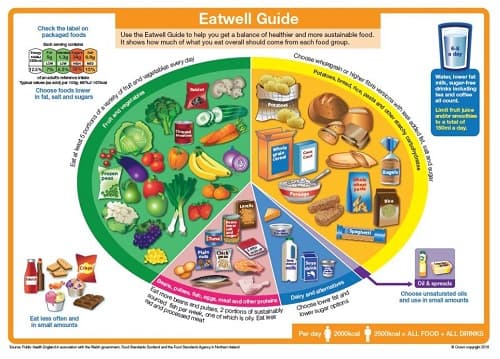
There is often hidden amounts of sugar, salt and saturated fat in our food. Below we look at why it’s important to be aware how much of each of these is in our food.
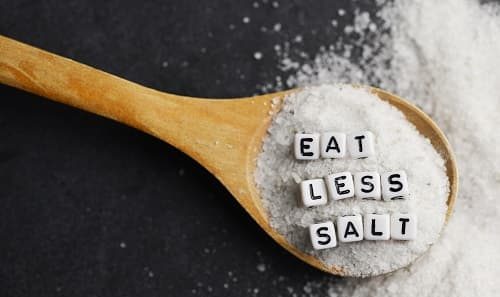
It’s all too easy to have too much salt in our diet as salt is added to so many foods nowadays. We do have to be careful how much salt is in our food though as too much salt in our diet can lead to an increased risk of heart disease or stroke.
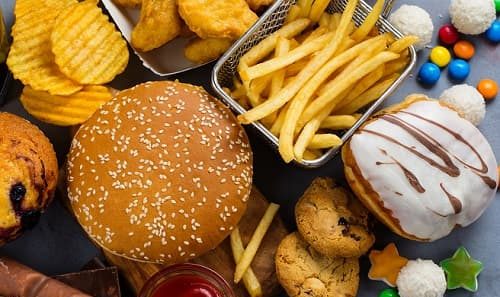
We all need a certain amount of fat in our diet, but we should be eating more unsaturated fat and less saturated fat. This is because saturated fat can raise cholesterol levels. The NHS website has lots of top tips on how you can reduce the amount of saturated fat you have in your diet.
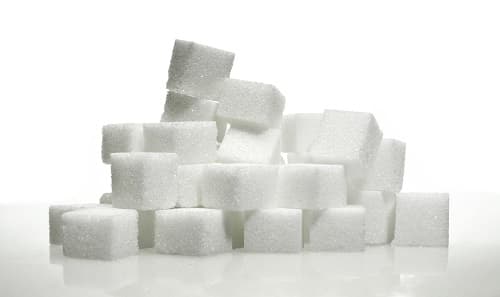
Too much sugar can lead to weight gain and dental decay if we are not careful. There are of course different types of sugar and it is free sugars and added sugar we need mostly to be aware of. Find out how sugar in our diet affects our health.

We all know that we need to cut back on sugar, salt and saturated fat, but how can we easily know how much of these are in our food?
This NHS healthy eating app show you exactly how much sugar, salt and saturated fat is in your food just by scanning the barcodes of your favourite products!
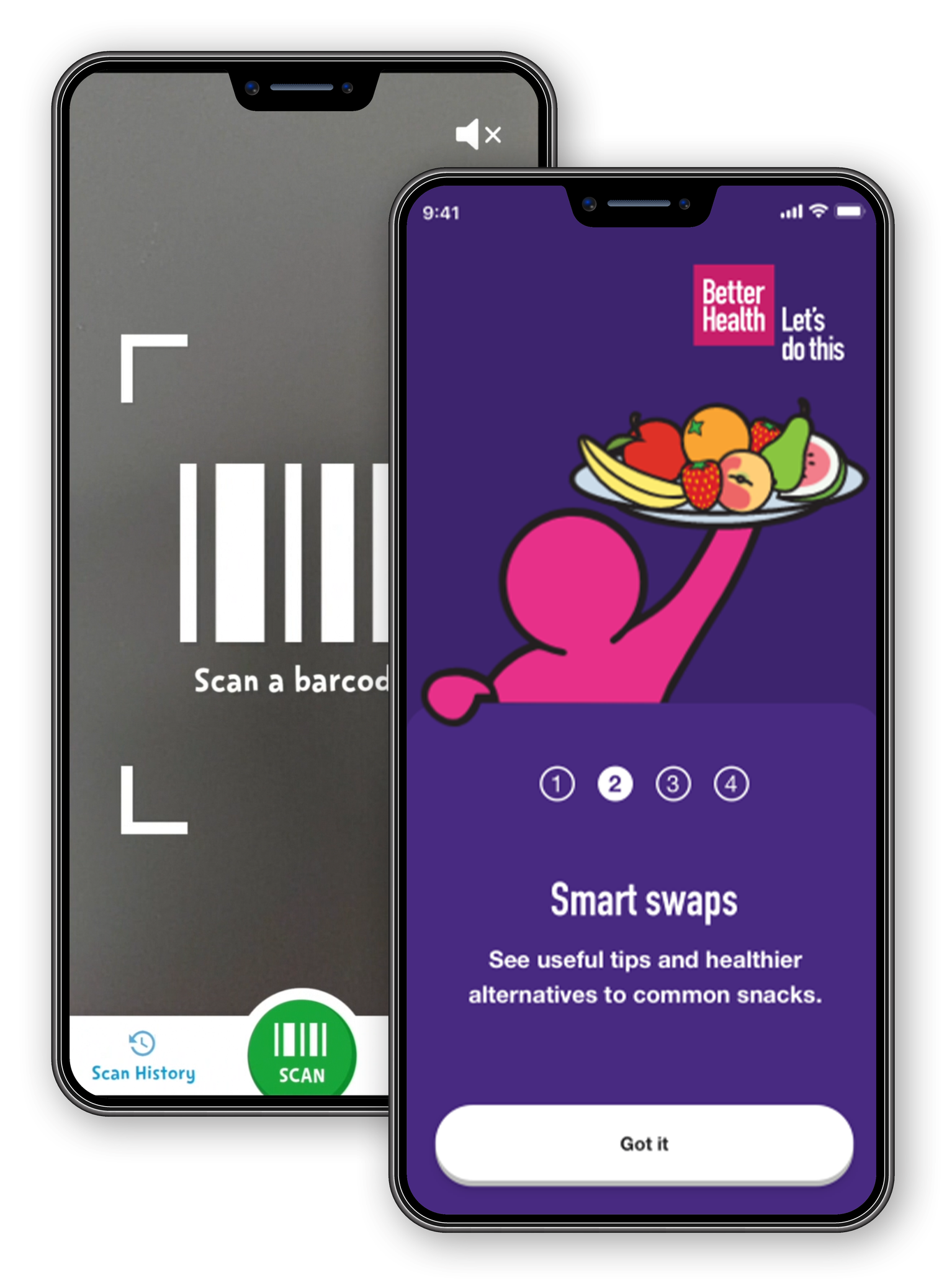
Find out about easy to make simple recipes the whole family will enjoy and get some top tips on eating well!
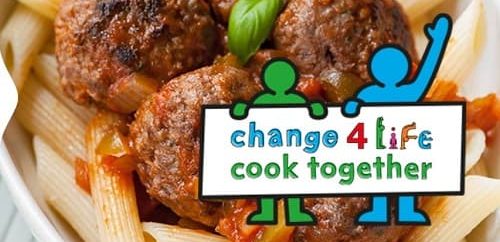
Where possible it’s always best to make your own food at home as then you know exactly what has gone into your food. Fortunately, the NHS Change4Life website has lots of simple, delicious recipes for you and your family to try from breakfasts to healthy lunch boxes to ideas for healthy picnics and BBQs!
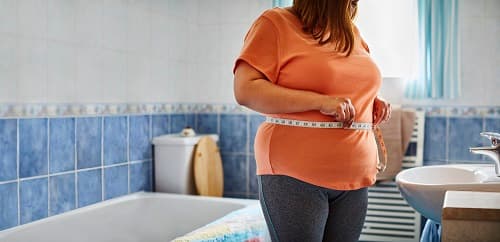
If you know you are overweight and you would like to lose some weight then we are here to support you with that. Losing weight has lots of health benefits and often small changes to your diet can make a big difference.
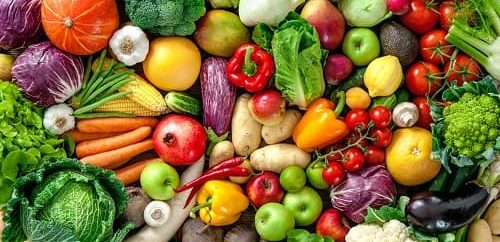
Everyone loves some top tips so check out these from the NHS website on eating healthy. These tips cover all the basics of a healthy diet and good nutrition.
The NHS Weight Loss Plan app is a 12 week programme designed to help you eat better, be more active, plan your meals, set goals and record your progress. Losing weight can be difficult so it’s important to not be too hard on yourself and work through the programme bit by bit.
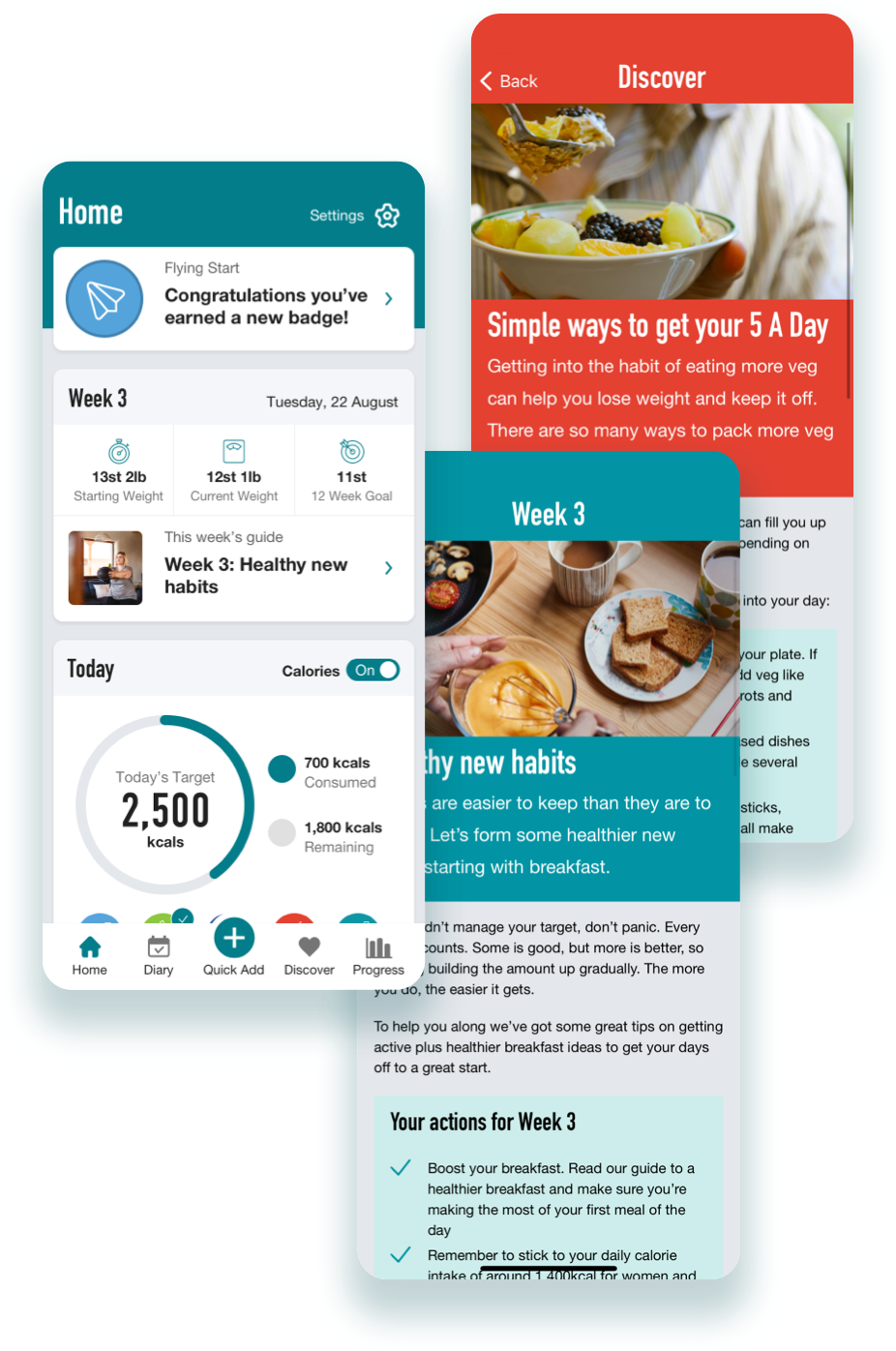
As well as having a good diet it’s important to be active for our health and wellbeing. We have lots of helpful advice and ideas for activities to help you to be more active.
Find out why it’s so important to be a healthy weight and what your diabetes risk score is. If you are currently struggling with an eating disorder or know someone who is then there is a helpline you can call for support.
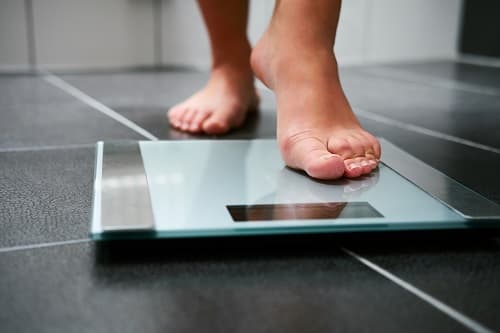
Being a healthy weight is good for your overall health. If you are underweight it can lead to a weakened immune system, having more fragile bones and feeling tired. However, if you are overweight and have an increased waist size then you could be at a higher risk of stroke, heart disease or Type 2 Diabetes. Find out if you are at a healthy weight by using the tool below.
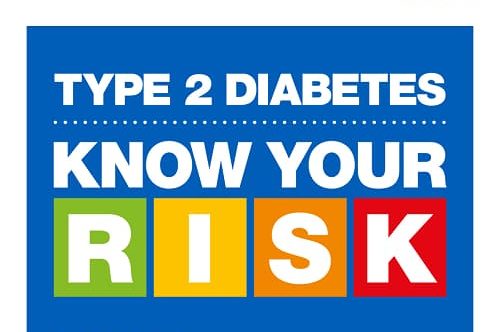
Do you know your Diabetes Risk Score? There are certain groups of people within the population that are at an increased risk of Type 2 Diabetes. Why not use the Diabetes Risk Score tool? It’s quick and easy to use and could be the most important thing you do today.

If you are struggling with an eating disorder then you don’t need to suffer in silence. Beat is a charity that has specialised in helping people with eating disorders since 1989. They have a helpline which is open 365 days a year and also provide support through other channels.
We all need to look after our own mental wellbeing, especially with effect the COVID-19 pandemic has had on everyone. The Mind Plan tool gives you your own personalised plan with simple steps to help your mental wellbeing.
